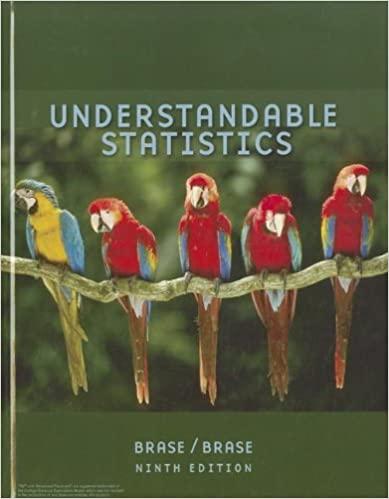Question
Should trade in bottled water be restricted? Thirty years ago, bottled water barely existed as a business. In 2006, $16 billion was spent on bottled
Should trade in bottled water be restricted?
Thirty years ago, bottled water barely existed as a business. In 2006, $16 billion was spent on bottled water in North America - more money than was spent oniPods or movie tickets. Worldwide, the business is worth over $50 billion a year, and multinational corporations Nestl, PepsiCo, Coca-Cola and Danone control the lion's share of the water market
Today, one billion bottles of water move around each week in ships, trains, and trucks in North America alone. People pay two or three times the cost of gasoline for a product that they can obtain free via a water tap. And tap water in North America, with rare exceptions, is impressively safe. It is monitored constantly, and the test results made public. In blind taste tests, with waters at equal temperatures, presented in identical glasses, ordinary people can rarely distinguish between tap water, spring water, and luxury waters.
In 2006, people drank more bottled water than milk, or coffee, or beer. Only carbonated soft drinks were more popular - with a market of twice that of bottled water.
Meanwhile, one out of six people in the world has no dependable, safe drinking water. The global economy has contrived to deny the most fundamental element of life to one billion people, while delivering to us an array of water "varieties" from around the globe, not one of which we actually need.
A plant in Fiji and a plant in San Pellegrino, Italy, spins out more than a million bottles a day of expensive bottled water.
Half the wholesale cost of Fiji Water is transportation. Plastic is shipped from China to Fiji for production. It is an 18 hour plane ride from Toronto to Fiji and a four hour truck ride to the Fiji plant which operates on three big generators running on diesel fuel.
In 2007, Fiji, water eclipsed sugarcane as the number-one export from the South Pacific nation. That is, the dollar value of the water bottled and shipped by 200 water bottlers exceeded the dollar value of the sugar harvested and processed for export by some 40,000 seasonal sugar workers.
Pepsi with its brand, Aquafina, and Coke with its brand, Dasani, control much of the North American market. But both brands are simply purified municipal water - so about one quarter of the bottled water we buy is tap water repackaged by Coke and Pepsi for our convenience. Another product, Evian, is owned by Danone, the French food giant, and distributed in the United States by Coke.
Another price to be paid for bottled water is environmental damage. While about a quarter of plastic bottles are recycled, about 40 million plastic water containers end up in North American landfill sites.
Some companies, like Nestl Waters, are redesigning bottles so that less plastic is used. Yet high-end water products continue to sell the more rigid containers.
Defenders of international trade in bottled water argue that the purchase of bottled water is a healthier choice than the purchase of bottled or canned soft drinks. They also point out that other food products - such as wine from France - are transported large distances even when less expensive alternatives are closer at hand.
Nonetheless, some activist are in favour of a boycotting the purchase of bottled water.
Princeton University philosophy professor Peter Singer argues that bottled water is a symbol of affluence that is an affront to the developing world. He suggests taking each dollar spent on bottled water and sending the money to Oxfam or CARE to help people in need. He believes that it's only marginally more trouble to have reusable water bottles, cleaned and filled and tucked in the lunch box or the fridge.
Should trade in bottled water be restricted?
Should you drink water that has been imported from places such as Italy, France, or Fiji?make reference to the environmental costs embedded in each bottle.
Explain why you personally use or do not use bottled water. Justify your personal position.
Step by Step Solution
There are 3 Steps involved in it
Step: 1

Get Instant Access with AI-Powered Solutions
See step-by-step solutions with expert insights and AI powered tools for academic success
Step: 2

Step: 3

Ace Your Homework with AI
Get the answers you need in no time with our AI-driven, step-by-step assistance
Get Started


